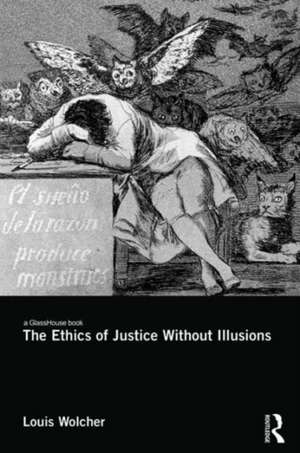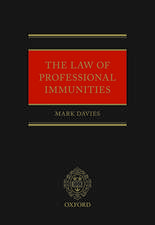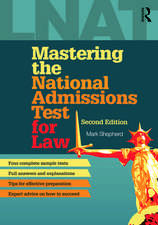The Ethics of Justice Without Illusions
Autor Louis E. Wolcheren Limba Engleză Hardback – 27 iun 2016
Preț: 820.71 lei
Preț vechi: 1103.26 lei
-26% Nou
Puncte Express: 1231
Preț estimativ în valută:
157.06€ • 163.37$ • 129.66£
157.06€ • 163.37$ • 129.66£
Carte tipărită la comandă
Livrare economică 14-28 aprilie
Preluare comenzi: 021 569.72.76
Specificații
ISBN-13: 9781138855649
ISBN-10: 1138855642
Pagini: 264
Ilustrații: 10
Dimensiuni: 156 x 234 x 21 mm
Greutate: 0.5 kg
Ediția:1
Editura: Taylor & Francis
Colecția Routledge
Locul publicării:Oxford, United Kingdom
ISBN-10: 1138855642
Pagini: 264
Ilustrații: 10
Dimensiuni: 156 x 234 x 21 mm
Greutate: 0.5 kg
Ediția:1
Editura: Taylor & Francis
Colecția Routledge
Locul publicării:Oxford, United Kingdom
Public țintă
Postgraduate and UndergraduateCuprins
PART ONE: A FRAMEWORK FOR THINKING THE ETHICS OF THE REAL 1. Indicating the Pathway: Prologue: questioning the ethical sufficiency of unity and truth; the structure of the book; The fundamental question; The triune Politics/Law/Justice; "Attention must be paid" ; The continuum War—Peace. 2. The Journey to Disenchantment: Generality; Beyond Transcendence and the phenomenon of Logical Transcendence; Law’s Task and the legal division of human suffering. 3. The Rise of the Particular: The lost nimbus; The ghost of the particular; Ontological particularity. 4. On Speechlessness: The speechless particular; The signifying face versus the enigmatic particular; The speechlessness of nature; Discourse and its antithesis. PART TWO: SOME PARTICULAR PROBLEMS OF THE PARTICULAR 5. International Law: Universal Human Rights and Cultural Diversity: The origins of "diversity"; The dialectics of unity and diversity; The problem of linguistic diversity; The relativity of universality; The haunting; Xerxes whips the Hellespont. 6. Business: Asking the Right Question in Business Ethics: "Can we harmonize ethical questions?"; Standard of conduct versus standard of review; The business judgment rule as ethical cover; Corporate social responsibility versus individual ethical responsibility; Command-and-control ethics; The business ethics question par excellence: "Who am I?" 7. Social Science: Senseless Kindness and the Politics of Cost-Benefit Analysis: What and why; Why and how; The phenomenon of senseless kindness; The challenge to CBA posed by the phenomenon of senseless kindness; The "preference for altruism"; Economic rationality and the problem of selecting the right "ex ante"; The significance of market "facts": CBA’s inherent antipathy to democratic politics; The politics of CBA. 8. Postscript: The problem of the subject(s); The completely broken heart.
Recenzii
The Ethics of Justice Without Illusions is a detailed and incisive book that critically examines the extent to which the practical, day-to-day operations of a modern legal system assist or hinder it in its aim of providing justice. Wolcher seeks out the injustices which are routinely created by the processes and procedures of legal decision making. This book finds those shortcomings of the legal system and aims to show how they are explained by those same decision-making processes. Wolcher then explores the disenchantment and disillusionment that can occur when someone experiences these shortcomings first-hand in the gap between law and justice, and discusses what might then be done with that disenchantment by someone striving to live ethically within such a legal system. This book grasps and painstakingly unpacks a crucial issue in applied ethics and critical legal theory. I would strongly recommend it to readers interested in those fields, and to anyone for whom the feeling of disenchantment with the law is familiar. --- Liam Patrick Moore, 37 Philosophy in Review 177-79 (2017).
Descriere
The founding premise of this book is that the nimbus of prestige, which once surrounded the idea of justice, has now been dimmed to such a degree that it is no longer sufficient to secure the possibility of a good conscience for those who undertake, in good faith, to make the world a better place in the spheres of politics and law. The many decent human beings who have noticed and experienced this diminishment of justice’s prestige find themselves in a thoroughly disenchanted existential situation. For them, the attempt to do justice without the illusion of being grounded in something beyond the sheer facticity of their own performances is a distinctly ethical theme, which cries out to be investigated in its own right. Heeding the cry, this book asks and attempts to answer the following fundamental ethical question: is a life in the law – even one spent in the pursuit of justice – worth living, and if so, how can a disenchanted person come to bear the living of it without constantly having to engage in self-deception? If Nietzsche is right that living without illusions is impossible for human beings, then the most important ethical implication of this essentially anthropological fact goes far beyond the question of what illusions we ought to choose. It must also include the question of whether we should succumb to that most seductive and pernicious of all illusions: namely, the belief that exercising great care and responsibility in choosing our illusions – which we might then call our ‘principles of justice’ – excuses us ethically for what we do to others in their name. The culmination of a 10 year legal-philosophical project, this book will appeal to graduate students, scholars and curious non-academic intellectuals interested in continental philosophy, critical legal theory, postmodern theology, the philosophy of human rights and the study of individual ethics in the context of law.











